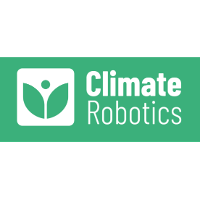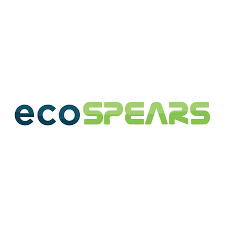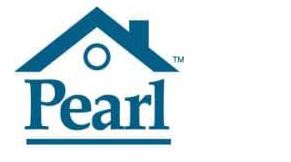Climate Change Investment
Initiative (2c2i)
Initiative (2c2i)
The Exelon Foundation elevates solutions to climate change
through its Climate Change Investment Initiative

The Exelon Foundation elevates solutions to climate change
through its Climate Change Investment Initiative

Our Mission
2c2i Program Blends Impact Objectives with
an Investment Approach
an Investment Approach
The Climate Change Investment Initiative (2c2i) is a 10-year, $20
million, joint commitment between Exelon Corporation and its
philanthropic arm, Exelon Foundation, to invest in and cultivate
innovative start-ups focused on advancing climate change
mitigation, adaptation and resiliency efforts, while also promoting
social equality and economic prosperity, in Exelon’s service
territories. These service territories include Chicago, IL ;
Philadelphia, PA; Baltimore, MD; Washington D.C.; Atlantic City, NJ
and Wilmington, DE.
million, joint commitment between Exelon Corporation and its
philanthropic arm, Exelon Foundation, to invest in and cultivate
innovative start-ups focused on advancing climate change
mitigation, adaptation and resiliency efforts, while also promoting
social equality and economic prosperity, in Exelon’s service
territories. These service territories include Chicago, IL ;
Philadelphia, PA; Baltimore, MD; Washington D.C.; Atlantic City, NJ
and Wilmington, DE.
The Climate Change Investment Initiative (2c2i) is a 10-year, $20 million,
joint commitment between Exelon Corporation and its philanthropic arm,
Exelon Foundation, to invest in and cultivate innovative start-ups focused
on advancing climate change mitigation, adaptation and resiliency efforts,
while also promoting social equality and economic prosperity, in Exelon’s
service territories. These service territories include Chicago, IL;
Philadelphia, PA; Baltimore, MD; Washington D.C.; Atlantic City, NJ and
Wilmington, DE.
joint commitment between Exelon Corporation and its philanthropic arm,
Exelon Foundation, to invest in and cultivate innovative start-ups focused
on advancing climate change mitigation, adaptation and resiliency efforts,
while also promoting social equality and economic prosperity, in Exelon’s
service territories. These service territories include Chicago, IL;
Philadelphia, PA; Baltimore, MD; Washington D.C.; Atlantic City, NJ and
Wilmington, DE.

How To Apply
How To Apply
We will be accepting new applicants Summer 2025.
We will be accepting new applicants Summer 2025.
OUR PROGRAM
Through the combined resources of Exelon Foundation ($10 million equity investment commitment) and Exelon Corporation (up to $10 million in-kind service
commitment), 2c2i supports innovative start-ups that catalyze solutions to climate change challenges within Exelon’s major market areas, while
advancing social equality and economic prosperity.
Upon selection, 2c2i start-ups realize a number of benefits to accelerate their ventures while delivering real-world impact. These benefits include:
commitment), 2c2i supports innovative start-ups that catalyze solutions to climate change challenges within Exelon’s major market areas, while
advancing social equality and economic prosperity.
Upon selection, 2c2i start-ups realize a number of benefits to accelerate their ventures while delivering real-world impact. These benefits include:
- A minimum of $100,000 equity investment from Exelon Foundation
-
In-kind services from Exelon Corporation. These services may include but may not be limited to:
- Brokering of relationships between the start-ups and key organizations/ stakeholders in Exelon territories that can support the start-up’s activity and mission
- Subject matter expertise-based guidance and advice
- Business plan review and guidance
- Networking opportunities with other 2c2i ventures and alumni
- Exposure to external sources of follow-on capital
- Regulatory and financial feedback
- Exelon commits to work with each selected start-up on an Impact Project.
An Impact Project is an effort driven by the start-up that supports the environmental goals of the Exelon community it operates in
while benefitting the underserved segments of the community.
An Impact Project helps to advance the start-up’s ultimate mission and business goals and can be everything from an organic extension
of the start-up’s pre-existing work in the territory to an entirely new effort scoped in collaboration with Exelon.
The goal is for the start-up to begin and make as much progress around the Impact Project as possible in partnership with Exelon
within 12 months of receiving investment under 2c2i.
OUR AREAS OF IMPACT AND INVESTMENT
2c2i was founded to drive positive impact around every dimension of ESG investing:
- Environmental: Advancing GHG emissions mitigation and climate change resiliency.
- Social: Supporting economic growth and opportunity for low-income or underserved communities while promoting environmental justice and equality.
- Governance: Supporting underrepresented women and minority founders: While 2c2i invests in start-ups with leadership teams from all backgrounds, it welcomes
participation from and is committed to supporting start-ups that have women or minority representation among its founder or leadership teams.
2c2i was founded to drive positive impact around every dimension of ESG investing:
with the United Nations Sustainability Developmental
Goals and IRIS+ Core Metrics and Catalogue of Metrics.
- Environmental: Advancing GHG emissions
mitigation and climate change resiliency. - Social: Supporting economic growth and
opportunity for low-income or underserved communities while promoting environmental
justice and equality - Governance: Supporting underrepresented
women and minority founders: While 2c2i
invests in start-ups with leadership teams
from all backgrounds, it welcomes participation
from and is committed to supporting start-ups
that have women or minority representation
among its founder or leadership teams.
with the United Nations Sustainability Developmental
Goals and IRIS+ Core Metrics and Catalogue of Metrics.
Under its Environmental mandate, 2C2i supports start-ups addressing the
following areas:
following areas:

Mitigation
Greenhouse Gas Emissions Reduction
Building Energy Efficiency Improvement
Industrial Process Energy Innovation
Renewable Energy Growth
Electrification of Transportation
Building Energy Efficiency Improvement
Industrial Process Energy Innovation
Renewable Energy Growth
Electrification of Transportation
Greenhouse Gas Emissions Reduction
Building Energy Efficiency Improvement
Industrial Process Energy Innovation
Renewable Energy Growth
Electrification of Transportation
Building Energy Efficiency Improvement
Industrial Process Energy Innovation
Renewable Energy Growth
Electrification of Transportation

Resilience & Adaptation
Integrate Climate Change Effects
into Planning Enhance Flood Mitigation
Improve Stormwater Management
Respond to Increasing
Temperatures
into Planning Enhance Flood Mitigation
Improve Stormwater Management
Respond to Increasing
Temperatures
Integrate Climate Change Effects
into Planning
Enhance Flood Mitigation
Improve Stormwater Management
Respond to Increasing Temperatures
into Planning
Enhance Flood Mitigation
Improve Stormwater Management
Respond to Increasing Temperatures
Under these broad themes, 2c2i invests in
start-ups that operate across the
functional areas:
start-ups that operate across the
functional areas:
Under these broad themes, 2c2i invests in
start-ups that operate across the
functional areas:
start-ups that operate across the
functional areas:

Water
Water

Waste

Transport

Food

Energy

Built
Environments
Environments

Nature
2c2i IN THE PRESS.
Click for press coverage on 2c2i and its
startups.
to learn more about the application
criteria and selection process. .
Click for press coverage on 2c2i and its
startups.
to learn more about the application
criteria and selection process. .
2c2i IN THE PRESS 2c2i.
Click for press coverage on 2c2i and its startups.
to learn more about the application criteria and selection process.
Click for press coverage on 2c2i and its startups.
to learn more about the application criteria and selection process.
Our Team
Paula Conrad
President, Exelon Foundation
Vice President, Corporate Relations
Exelon Corporation
Vice President, Corporate Relations
Exelon Corporation
Sunny Elebua
Senior Vice President Chief Strategy &
Sustainability Officer
Exelon Corporation
Sustainability Officer
Exelon Corporation
Faith Davis
Lead, Climate Change Investment Initiative
Exelon Corporation
Exelon Corporation








































